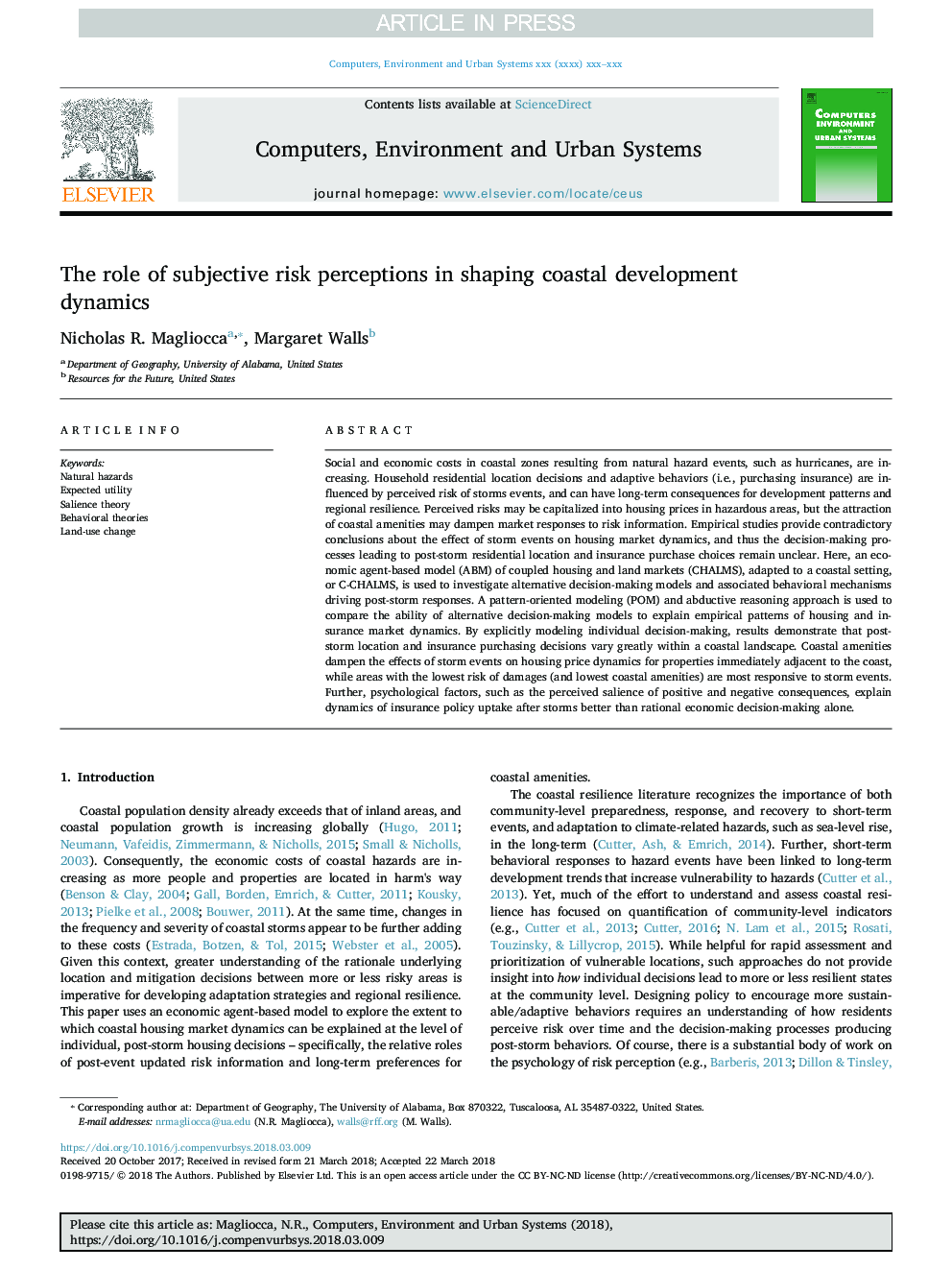| کد مقاله | کد نشریه | سال انتشار | مقاله انگلیسی | نسخه تمام متن |
|---|---|---|---|---|
| 6921813 | 1448219 | 2018 | 13 صفحه PDF | دانلود رایگان |
عنوان انگلیسی مقاله ISI
The role of subjective risk perceptions in shaping coastal development dynamics
ترجمه فارسی عنوان
نقش تصور مخاطی ذهنی در شکل دادن به پویایی توسعه ساحلی
دانلود مقاله + سفارش ترجمه
دانلود مقاله ISI انگلیسی
رایگان برای ایرانیان
کلمات کلیدی
خطرات طبیعی، ابزار مورد انتظار، نظریه برجسته، نظریه های رفتاری، تغییر کاربری زمین،
موضوعات مرتبط
مهندسی و علوم پایه
مهندسی کامپیوتر
نرم افزارهای علوم کامپیوتر
چکیده انگلیسی
Social and economic costs in coastal zones resulting from natural hazard events, such as hurricanes, are increasing. Household residential location decisions and adaptive behaviors (i.e., purchasing insurance) are influenced by perceived risk of storms events, and can have long-term consequences for development patterns and regional resilience. Perceived risks may be capitalized into housing prices in hazardous areas, but the attraction of coastal amenities may dampen market responses to risk information. Empirical studies provide contradictory conclusions about the effect of storm events on housing market dynamics, and thus the decision-making processes leading to post-storm residential location and insurance purchase choices remain unclear. Here, an economic agent-based model (ABM) of coupled housing and land markets (CHALMS), adapted to a coastal setting, or C-CHALMS, is used to investigate alternative decision-making models and associated behavioral mechanisms driving post-storm responses. A pattern-oriented modeling (POM) and abductive reasoning approach is used to compare the ability of alternative decision-making models to explain empirical patterns of housing and insurance market dynamics. By explicitly modeling individual decision-making, results demonstrate that post-storm location and insurance purchasing decisions vary greatly within a coastal landscape. Coastal amenities dampen the effects of storm events on housing price dynamics for properties immediately adjacent to the coast, while areas with the lowest risk of damages (and lowest coastal amenities) are most responsive to storm events. Further, psychological factors, such as the perceived salience of positive and negative consequences, explain dynamics of insurance policy uptake after storms better than rational economic decision-making alone.
ناشر
Database: Elsevier - ScienceDirect (ساینس دایرکت)
Journal: Computers, Environment and Urban Systems - Volume 71, September 2018, Pages 1-13
Journal: Computers, Environment and Urban Systems - Volume 71, September 2018, Pages 1-13
نویسندگان
Nicholas R. Magliocca, Margaret Walls,
